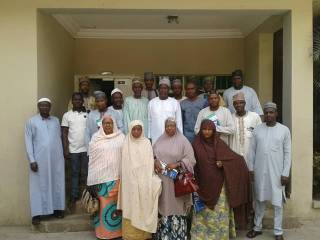DAP is one of the four programmes that made up the Schools Support Programme (SSP) through which NCC provides equipment and devices to educational institutions to enable the students and their teachers to learn new digital skills to bridge the digital divide, enhance their studies, and enable them to qualitatively improve on their wellbeing by tapping into the knowledge economy that is oriented in the emergent digital culture.
In 2018, the NCC Kano Zonal Office undertook visitations to many of the schools that benefited from DAP which involves the provision of an ICT laboratory equipped with computers that are connected to the Internet, and a year Internet subscription. Each benefitting school also receive a power generating set from NCC to ensure regular power supply to the ICT lab.
Shuaibu Swade, the Controller Kano Zonal Office of NCC stated that the the Zonal Office found that most of the schools evidently abandoned the facilities after the expiration of the free bandwidth offered by NCC. "This is the reason we are organising this multi-stakeholder meeting of 15 principals of the secondary schools that benefited from the project. We also invited representatives of Kano State SERVICOM, Kano State Secondary School Management Board, community groups, Parent-Teachers Associations, as well as Old Boys or Girls Unions of the schools involved. This is to enable us to reflect together on how to reactivate the projects and ensure sustainable utilization of the laboratories to produce measurable outcomes. Swade stated and noted that the zonal office embarked on the visit to various schools in keeping with Commission's determination to ensure that beneficiaries of all its projects maximize all the benefits derivable from such programmes and projects.
All the participants at the meeting made very useful comments and observations, and they all thanked the NCC for the opportunity created to reflect on the projects and their sustainability.

